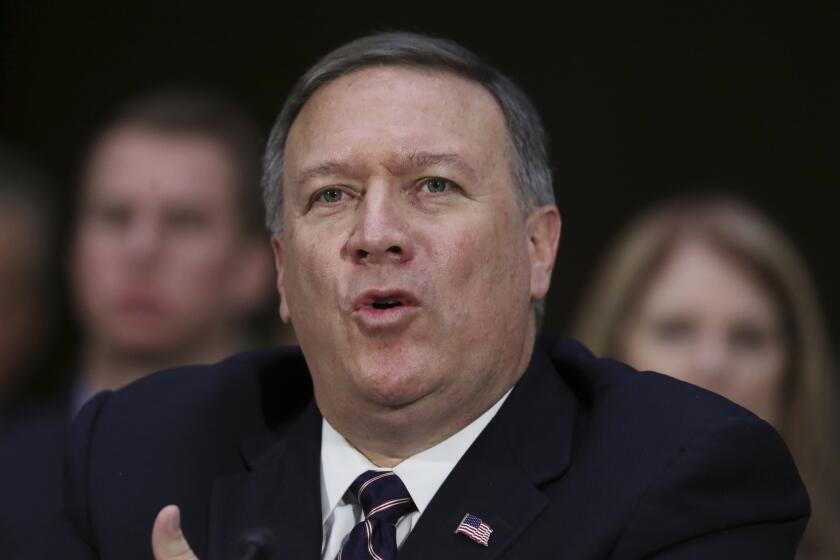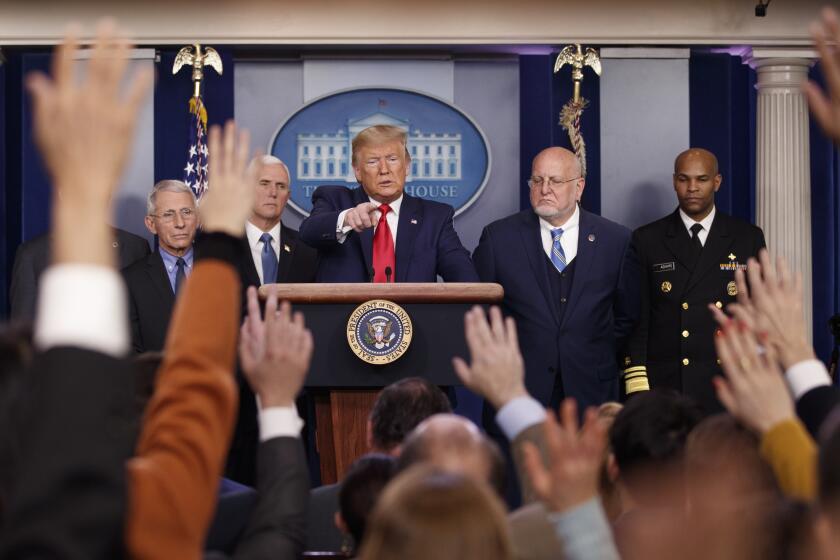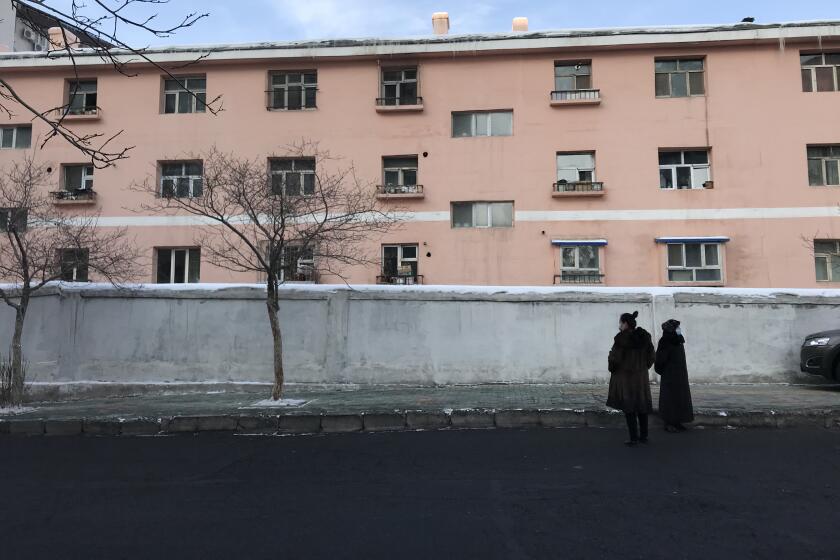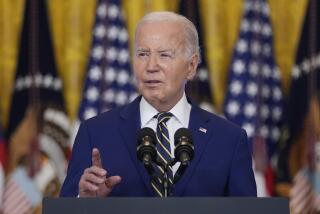Biden administration blasts Trump-era human rights policies
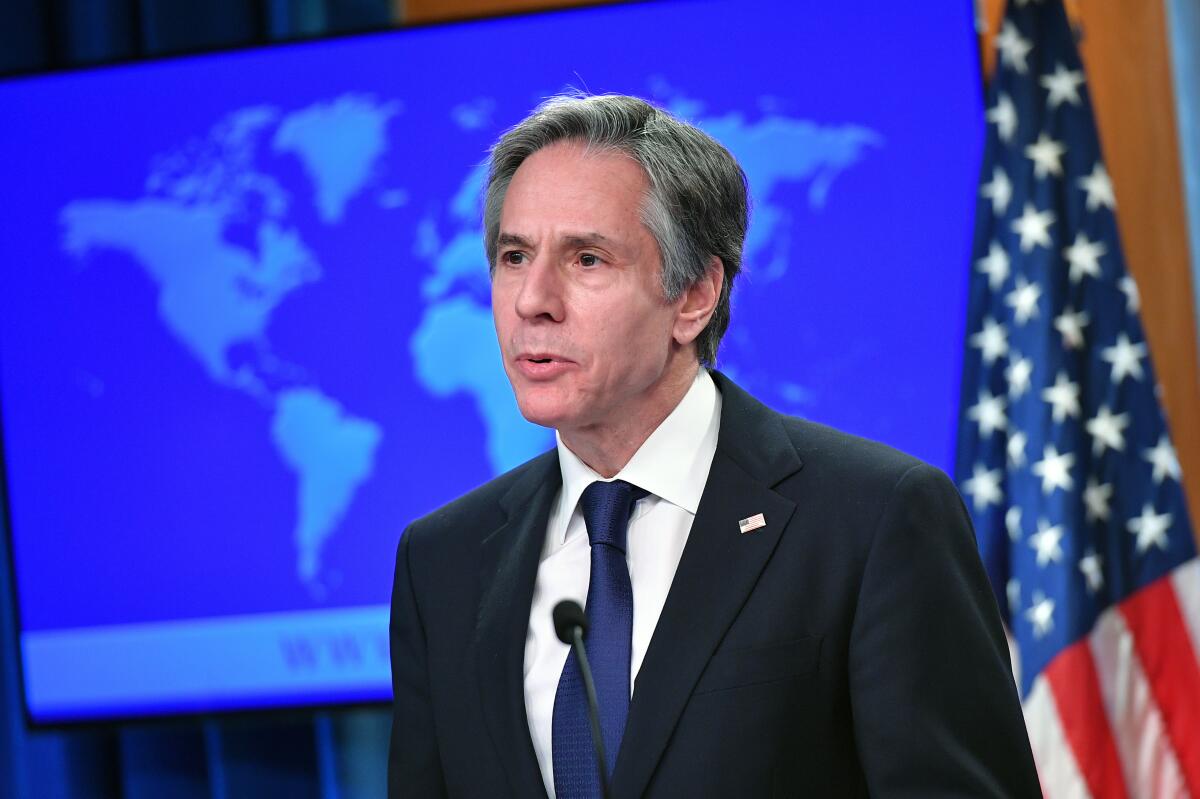
WASHINGTON — The Biden administration Tuesday issued a sharp repudiation of Trump-era policies that diminished women’s and reproductive rights and gave priority to religious freedoms even to the detriment of other liberties.
Saying that human rights are universal and “co-equal,” Secretary of State Antony Blinken announced a reversal of the way Trump officials collected and assessed some data on freedom in scores of countries.
Blinken made the comments as he released the State Department’s annual global human rights report, compiled during the last year of the Trump administration. Sections on women’s rights and reproductive health were stripped under former President Trump and his secretary of State, Michael R. Pompeo.
Blinken announced the unusual step of releasing later this year country-by-country addenda to the report to address rights for women, including maternal healthcare, access to contraception, and discrimination against those with sexually transmitted diseases.
Pompeo, a conservative Christian evangelical, insisted that religious freedom was the single most important human right, from which all other rights arose. He established the Commission on Unalienable Rights and held annual international religious freedom conferences that critics and some participants said sanctioned discrimination against LGBTQ communities and others.
“Human rights are also co-equal; there is no hierarchy that makes some rights more important than others,” Blinken said in releasing the report.
“Past unbalanced statements that suggest such a hierarchy, including those offered by a recently disbanded State Department advisory committee, [the ‘unalienable rights’ panel], do not represent a guiding document for this administration.”
Secretary of State Pompeo is shifting America’s human rights focus abroad to the mistreatment of Christians, rather than LGBTQ and women’s rights.
In addition to the emphasis on religious freedom, Pompeo took other steps criticized by activists, such as withdrawing from the United Nations Human Rights Council and reimposing the so-called Mexico City policy, nicknamed the global gag rule on abortion.
As late as October 2020 he was warning, through the U.S. Agency for International Development, that policies he had implemented denied U.S. aid to any organization around the world that performed abortions or even offered counseling on termination of pregnancy.
Blinken on Tuesday reiterated the Biden administration’s intention to repeal those measures; he revoked the Mexico City policy in January.
“One of the core principles of human rights is that they are universal,” Blinken said Tuesday. “All people are entitled to these rights, no matter where they’re born, what they believe, whom they love or any other characteristic.”
Documenting worldwide rights violations, Human Rights Watch says the U.S. must work to regain credibility.
Human rights organizations welcomed Blinken’s announcement and the apparent shift in U.S. direction.
“No hierarchy of human rights. Not revolutionary. Just factual statement of human rights law. Yet. So good to hear it stated,” Amanda Klasing, who handles women’s issues at Human Rights Watch, said in a tweet.
In an interview, she added that the silence on these issues from the U.S. government for the last four years often emboldened abusive governments that felt they could escape accountability.
It is difficult to gauge the full impact Trump policies had on women’s rights and health, officials and activists said.
Serra Sippel, president of CHANGE, which advocates for sexual health rights, said that when human rights lawyers and defenders have attempted to challenge officials, not having State Department information left them exposed, without U.S. backing and made their cause more difficult.
The bulk of the report released Tuesday covered the wide and expanding range of dire human rights conditions across the planet. It blasted China’s “genocide and crimes against humanity” inflicted on the Muslim minority Uyghurs and harsh crackdown on activists and dissidents in Hong Kong.
A vast system of Chinese surveillance, detention, cultural erasure and forced labor has devastated the Uighur people in Xinjiang, their homeland.
It denounced “extreme repression” of the Rohingya Muslims in Myanmar, but the report predates last month’s military coup, which has led to scores of killings of civilians.
Venezuela, where Trump unsuccessfully sought to overthrow the leftist government, came in for criticism because of civil rights abuses and fraudulent elections, as did Cuba. The accounts of Saudi Arabia and Israel were much the same as in previous years, a listing of abuses in relatively neutral terms. Iran received a much more harsh discussion, accused of “materially contributing” to violations of its own citizens and those of its neighbors.
The reports are not intended to rank countries’ records, said Lisa Peterson, acting assistant secretary of State for democracy and human rights, but are “factual” and not judgmental. They retained the tone and material collected during 2020 and could not be altered by the current administration, she said.
More to Read
Get the L.A. Times Politics newsletter
Deeply reported insights into legislation, politics and policy from Sacramento, Washington and beyond. In your inbox three times per week.
You may occasionally receive promotional content from the Los Angeles Times.
